Throughout this blog series we’ve been finding the best disc golf discs for 2025. First we looked at the best putters, then the best midranges, before moving on to the higher-speed discs, the best fairway drivers and best distance drivers. This week, we’ll combine the best of the best, and find out which mold is number one!
First, let’s look at the top disc results for the previous year. Then we can see which discs did better and which ones might have fallen off the list.
Best Discs For 2023
| Disc Rank |
Manufacturer |
Disc Name |
Disc Type |
| 1 |
MVP |
Glitch |
Putt & Approach |
| 2 |
Discraft |
Buzzz |
Mid Range |
| 3 |
Innova |
Wraith |
Distance Driver |
| 4 |
Infinite Discs |
Alpaca |
Putt & Approach |
| 5 |
Infinite Discs |
Emperor |
Distance Driver |
| 6 |
Innova |
Destroyer |
Distance Driver |
| 7 |
Axiom |
Hex |
Mid Range |
| 8 |
Discraft |
Zone |
Putt & Approach |
| 9 |
Axiom |
Envy |
Putt & Approach |
| 10 |
Infinite Discs |
Tomb |
Putt & Approach |
| 11 |
Infinite Discs |
Dynasty |
Control Driver |
| 12 |
Infinite Discs |
Pharaoh |
Distance Driver |
| 13 |
Innova |
Pig |
Mid Range |
| 14 |
Kastaplast |
Berg |
Putt & Approach |
| 15 |
Infinite Discs |
Maya |
Distance Driver |
| 16 |
Gateway |
Wizard |
Putt & Approach |
| 17 |
Innova |
Mamba |
Distance Driver |
| 18 |
Axiom |
Proxy |
Putt & Approach |
| 19 |
Infinite Discs |
Sphinx |
Control Driver |
| 20 |
Infinite Discs |
Centurion |
Control Driver |
| 21 |
Dynamic Discs |
Judge |
Putt & Approach |
| 22 |
Discraft |
Luna |
Putt & Approach |
| 23 |
Innova |
Firebird |
Control Driver |
| 24 |
Axiom |
Crave |
Control Driver |
| 25 |
Latitude 64 |
Pure |
Putt & Approach |
| 26 |
Innova |
Aviar |
Putt & Approach |
| 27 |
Innova |
Leopard |
Control Driver |
| 28 |
Infinite Discs |
Aztec |
Distance Driver |
| 29 |
Innova |
Mako3 |
Mid Range |
| 30 |
Innova |
Teebird |
Control Driver |
| 31 |
Axiom |
Insanity |
Control Driver |
| 32 |
Innova |
Valkyrie |
Control Driver |
| 33 |
Thought Space Athletics |
Construct |
Distance Driver |
| 34 |
Discraft |
Athena |
Control Driver |
| 35 |
Infinite Discs |
Anubis |
Mid Range |
| 36 |
Latitude 64 |
River |
Control Driver |
| 37 |
Innova |
Tern |
Distance Driver |
| 38 |
Innova |
Rollo |
Mid Range |
| 39 |
Innova |
Leopard3 |
Control Driver |
| 40 |
Latitude 64 |
Diamond |
Control Driver |
| 41 |
Discraft |
Heat |
Control Driver |
| 42 |
Thought Space Athletics |
Mantra |
Control Driver |
| 43 |
Innova |
Beast |
Distance Driver |
| 44 |
Thought Space Athletics |
Votum |
Control Driver |
| 45 |
Innova |
Thunderbird |
Control Driver |
| 46 |
Innova |
Shryke |
Distance Driver |
| 47 |
MVP |
Watt |
Putt & Approach |
| 48 |
Infinite Discs |
Roman |
Control Driver |
| 49 |
Clash Discs |
Wild Honey |
Distance Driver |
| 50 |
Innova |
Roadrunner |
Control Driver |
The hot seller for that year was the MVP Glitch, a putt and approach disc that leapt into first place during its first full year of sales! We’ll have to see how it did during its sophomore year of sales. So, lets up into the list of the top sellers for 2024.
Best of the Best Discs
| Disc Rank |
Manufacturer |
Disc Name |
Disc Type |
% of Sales |
| 1 |
Axiom |
Pixel |
Putt & Approach |
2.1% |
| 2 |
Innova |
Wraith |
Distance Driver |
1.9% |
| 3 |
Infinite Discs |
Emperor |
Distance Driver |
1.7% |
| 4 |
Infinite Discs |
Alpaca |
Putt & Approach |
1.6% |
| 5 |
Innova |
Destroyer |
Distance Driver |
1.6% |
| 6 |
Discraft |
Buzzz |
Mid Range |
1.5% |
| 7 |
Infinite Discs |
Pharaoh |
Distance Driver |
1.3% |
| 8 |
Infinite Discs |
Sphinx |
Control Driver |
1.3% |
| 9 |
Discraft |
Zone |
Putt & Approach |
1.2% |
| 10 |
Axiom |
Envy |
Putt & Approach |
1.2% |
| 11 |
Infinite Discs |
Tomb |
Putt & Approach |
1.0% |
| 12 |
Innova |
Mamba |
Distance Driver |
0.9% |
| 13 |
Infinite Discs |
Maya |
Distance Driver |
0.9% |
| 14 |
Gateway |
Wizard |
Putt & Approach |
0.8% |
| 15 |
Infinite Discs |
Dynasty |
Control Driver |
0.8% |
| 16 |
MVP |
Glitch |
Putt & Approach |
0.8% |
| 17 |
Discraft |
Luna |
Putt & Approach |
0.8% |
| 18 |
Axiom |
Crave |
Control Driver |
0.8% |
| 19 |
Innova |
Mako3 |
Mid Range |
0.8% |
| 20 |
Infinite Discs |
Roman |
Control Driver |
0.7% |
| 21 |
Innova |
Rollo |
Mid Range |
0.7% |
| 22 |
Innova |
Gorgon |
Distance Driver |
0.7% |
| 23 |
Infinite Discs |
Centurion |
Control Driver |
0.6% |
| 24 |
Axiom |
Hex |
Mid Range |
0.6% |
| 25 |
Innova |
Valkyrie |
Control Driver |
0.6% |
| 26 |
Prodigy |
PA-3 |
Putt & Approach |
0.6% |
| 27 |
MVP |
Trail |
Distance Driver |
0.6% |
| 28 |
Axiom |
Time-Lapse |
Distance Driver |
0.6% |
| 29 |
Innova |
Tern |
Distance Driver |
0.6% |
| 30 |
Latitude 64 |
Pure |
Putt & Approach |
0.6% |
| 31 |
Innova |
Leopard |
Control Driver |
0.6% |
| 32 |
Innova |
Teebird |
Control Driver |
0.6% |
| 33 |
Innova |
Aviar |
Putt & Approach |
0.5% |
| 34 |
Kastaplast |
Berg |
Putt & Approach |
0.5% |
| 35 |
Discraft |
Cicada |
Control Driver |
0.5% |
| 36 |
Innova |
Firebird |
Control Driver |
0.5% |
| 37 |
Innova |
Pig |
Mid Range |
0.5% |
| 38 |
Innova |
Leopard3 |
Control Driver |
0.5% |
| 39 |
Thought Space Athletics |
Mantra |
Control Driver |
0.5% |
| 40 |
Innova |
Shryke |
Distance Driver |
0.5% |
| 41 |
Latitude 64 |
River |
Control Driver |
0.5% |
| 42 |
Infinite Discs |
Aztec |
Distance Driver |
0.5% |
| 43 |
Axiom |
Proxy |
Putt & Approach |
0.4% |
| 44 |
MVP |
Wave |
Distance Driver |
0.4% |
| 45 |
Innova |
Thunderbird |
Control Driver |
0.4% |
| 46 |
Innova |
Beast |
Distance Driver |
0.4% |
| 47 |
Thought Space Athletics |
Construct |
Distance Driver |
0.4% |
| 48 |
Innova |
Roadrunner |
Control Driver |
0.4% |
| 49 |
Clash Discs |
Wild Honey |
Distance Driver |
0.4% |
| 50 |
Dynamic Discs |
Judge |
Putt & Approach |
0.4% |
Although we see a new leader in sales for last year, the Axiom Pixel, it overcame the same challenges of taking the top spot as the Glitch: it did so in its first full year of sales! The MVP/Axiom folks are putting out some great molds that are backed by popular pros.
Here are highlights of the top discs for the year:
1 Axiom Pixel – The Pixel is a straight, fairly glidey putter that, although it feels right at home as an approach disc or throwing putter on shorter holes, can also be found in the hands of disc golfers hoping to sink a long putt.
2 Innova Wraith – A perennial top contender for sales, the Wraith has the popular flight characteristics as the Destroyer, but a little slower speed. Every brand eventually makes a mold with the same flight numbers.
3 Infinite Discs Emperor – Coming up on its sixth birthday, the Emperor has been a hit from the beginning. It is made out of nearly every Infinite plastic, so give you a variety of options. And yes, it has a flight similar to the aforementioned Destroyer.
4 Infinite Discs Alpaca – Another mold that has been a hit from the beginning is the Infinite Alpaca. The beadless putter feels wonderful in your hand and performs even better. Try throwing the Alpaca today and see what the hype is all about.
5 Innova Destroyer – Ahhh, the Innova Destroyer. It has been around longer that most people have been playing disc golf. And it has been a favorite ever since its release. The Destroyer can be found in nearly every plastic, and a variety of weights, to meet the needs of most disc golfers. It has flight numbers that mimic a nice S-curve. Those numbers contribute to a nice S-curve for its flight.
6 Discraft Buzzz
7 Infinite Discs Pharaoh
8 Infinite Discs Sphinx
9 Discraft Zone
10 Axiom Envy
Comparing changes from year to year, we find seven molds that made the current list, that weren’t there the year before. That includes the number one disc on the list, the Axiom Pixel. Here is the list of the seven molds new to the top 50 this year:
Axiom Pixel
Innova Gorgon
Prodigy PA-3
MVP Trail
Axiom Time-Lapse
Discraft Cicada
MVP Wave
Check out the complete list of the best selling discs at Infinite Discs:
Brands in the Top 50
It is always interesting to see how many different brands are represented in the list of the top discs. Some brands you pretty much expect to see on the list. Others are somewhat of a surprise. With the changing disc golf manufacturer landscape, a couple brands still dominate, but smaller brands are starting to carve out their share of the market. Here are the top Brands on the list:

No one will be surprised to see that Innova leads the pack, with a whopping 18 molds in the top 50. Just as unsurprising, Infinite takes second place. Discraft, with its star-studded lineup of touring pros, comes in fourth with four molds in the top 50.
Most Popular Disc Types
If you sort the top 50 discs according to their disc type, three of the four types listed all have close to the same representation in the top 50. The exception is the midrange disc, with only 5 molds in the top 50.
The highest-rated midrange disc in the top 50 is the Discraft Buzzz, which is the sixth most popular mold, and will likely continue to land near the top of the list. It is a staple in many player’s bags, and has been a hot-seller for a long time.
Highest Rated Disc Golf Discs
The Infinite Discs rewards program includes incentives to give reviews about discs and accessories that we offer. We show the results of those ratings on every product page. The rating system allows customers to rate a disc/product on a scale from one to five stars, as well as give brief reviews about the item. This valuable feedback gives seeking customers insights to what their fellow disc golfers think about the disc/product.
Infinite discs has pages which show the highest rated discs on a single page, to give you an overview of the top rated discs. Bookmark these pages and refer to them next time you are shopping, to help guide your purchases.
Best Putters 2025
In our Best Putters blog we saw how the Axiom Pixel had dethroned the MVP Glitch for the title of the Best Putter. The straight-flying Pixel is the second mold in the Simon Line of discs, giving it a boost among Lizotte fans. It flies straight with minimal fade. The Pixel’s micro-bead is comfortable in your hand, giving you confidence driving the disc, or putting into the basket.
Here are the top putters for 2025:
1 Axiom Pixel
2 Infinite Discs Alpaca
3 Discraft Zone
4 Axiom Envy
5 Infinite Discs Tomb
Check out the rest of the top putters HERE
Best Midrange Discs 2025
The Best Midrange disc for 2025 will surprise no one. The Discraft Buzzz has been a hot seller for a couple decades. It feels great in your hand, comes in a variety of plastics and stamps, and flies like you need it to fly. As a disc you can use in many situations, the Buzzz delivers. It will continue to sell well.
1 Discraft Buzzz
2 Innova Mako3
3 Innova Rollo
4 Axiom Hex
5 Innova Pig
Check out the rest of the top midrange discs HERE
Best Fairway Driver 2025
According to the Best Control (Fairway) Driver blog, the Infinite Discs Sphinx is in the number one spot. Although it is an understable disc that is well suited for newer players, it is also available in plastics that make the mold more overstable, and more likely to be utilized by more experienced players.
1 Infinite Discs Sphinx
2 Infinite Discs Dynasty
3 Axiom Crave
4 Infinite Discs Roman
5 Infinite Discs Centurion
Check out the rest of the top fairway drivers HERE
Best Distance Driver
The Best Distance Driver blog indicated that the Innova Wraith was everyone’s favorite. Like the Buzzz, it is not unusual to see the Wraith at or near the top of the list. It has desirable flight numbers. Endorsed by the legend, Ken Climo, the Wraith can be used by forehand and backhand players to maximize their throws.
1 Innova Wraith
2 Infinite Discs Emperor
3 Innova Destroyer
4 Infinite Discs Pharaoh
5 Innova Mamba
Check out the rest of the top distance drivers HERE
More Best Disc Features
This is just a sample of the many best-selling disc features we have. Bookmark these links to find the best disc golf discs for you.
Comment About Your Favorite Disc And WIN!
We love gathering data and we want to hear from you. Tell us what you think is the best overall disc in your bag, and you could win an Infinite Discs gift card. We’ll pick three random commenters to win a $50 gift card. One comment per person. All comments need to be approved (to prevent spam) so your comment may not appear for a day or two.


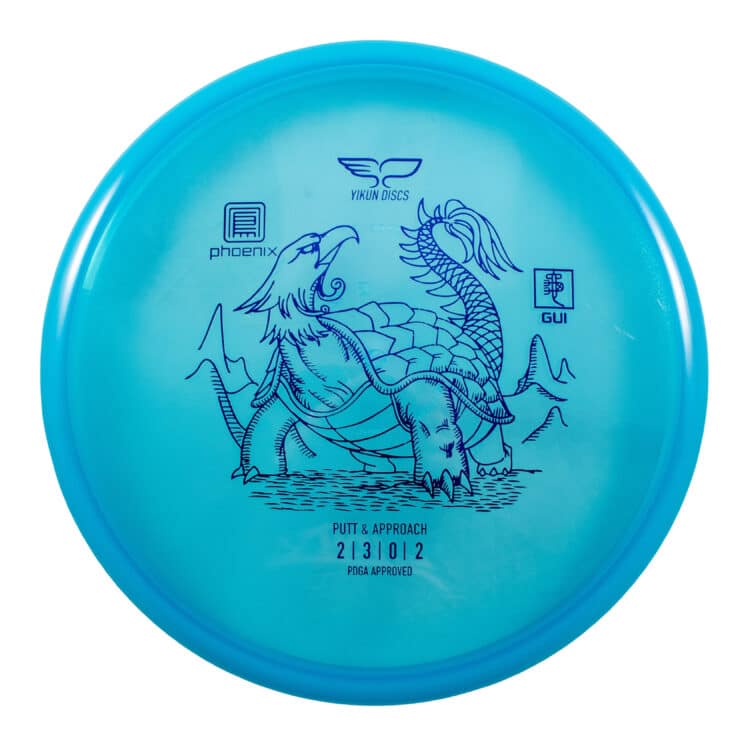










 Although they are not the newest disc golf brand around, they are still new by disc manufacturer standards. Lucky Discs was officially founded just three years ago, in 2022, by Tero Pesola and his team. As long-time disc golf enthusiasts, the team wanted to design and create stylish discs that reflect their vision for the sport. From that idea, Lucky Discs was born.
Although they are not the newest disc golf brand around, they are still new by disc manufacturer standards. Lucky Discs was officially founded just three years ago, in 2022, by Tero Pesola and his team. As long-time disc golf enthusiasts, the team wanted to design and create stylish discs that reflect their vision for the sport. From that idea, Lucky Discs was born. the Money Shot, was officially PDGA approved. The Money Shot is a beefy beadless approach putter that can handle big arms for precision approach shots, and is a great utility disc for everyone.
the Money Shot, was officially PDGA approved. The Money Shot is a beefy beadless approach putter that can handle big arms for precision approach shots, and is a great utility disc for everyone. The naming convention for their molds is simply rooted in real-life rounds. Certainly, all of us have been hunting for the treasure of an ace! Many of us have robbed our buddies of a victory by executing the perfect hole. And another name for a winning shot is a Money Shot. It will be fun to see what other themed names their team dreams up out on the course!
The naming convention for their molds is simply rooted in real-life rounds. Certainly, all of us have been hunting for the treasure of an ace! Many of us have robbed our buddies of a victory by executing the perfect hole. And another name for a winning shot is a Money Shot. It will be fun to see what other themed names their team dreams up out on the course!

 Taking the top spot for sales is the
Taking the top spot for sales is the  The Wraith is a speed 11 disc that has a flight similar to some of the other top discs on the list. Taking second is the
The Wraith is a speed 11 disc that has a flight similar to some of the other top discs on the list. Taking second is the 


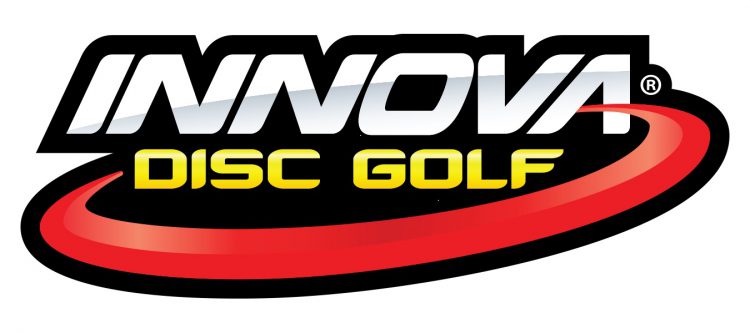
 distance drivers is Infinite Discs’ popular high-speed driver, the
distance drivers is Infinite Discs’ popular high-speed driver, the  have the highest rated understable drivers. Topping the list are discs from
have the highest rated understable drivers. Topping the list are discs from  meaning little turn and a less aggressive fade, we find the stable
meaning little turn and a less aggressive fade, we find the stable 
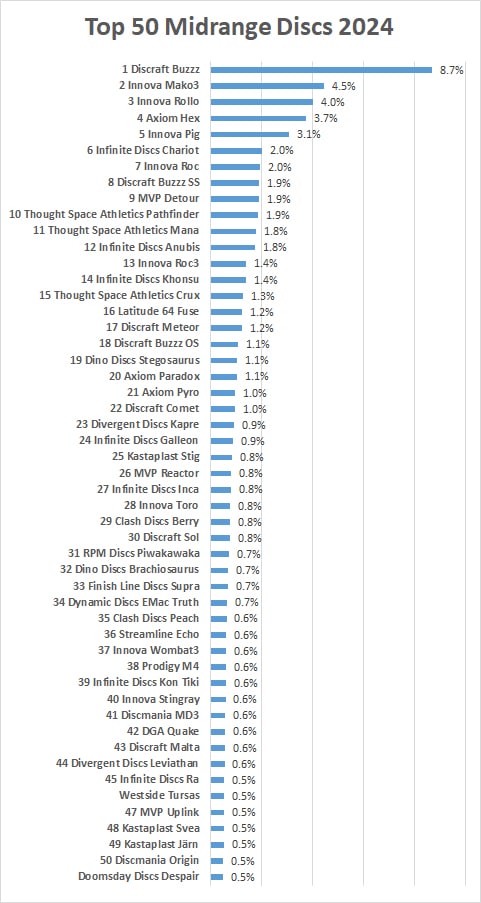
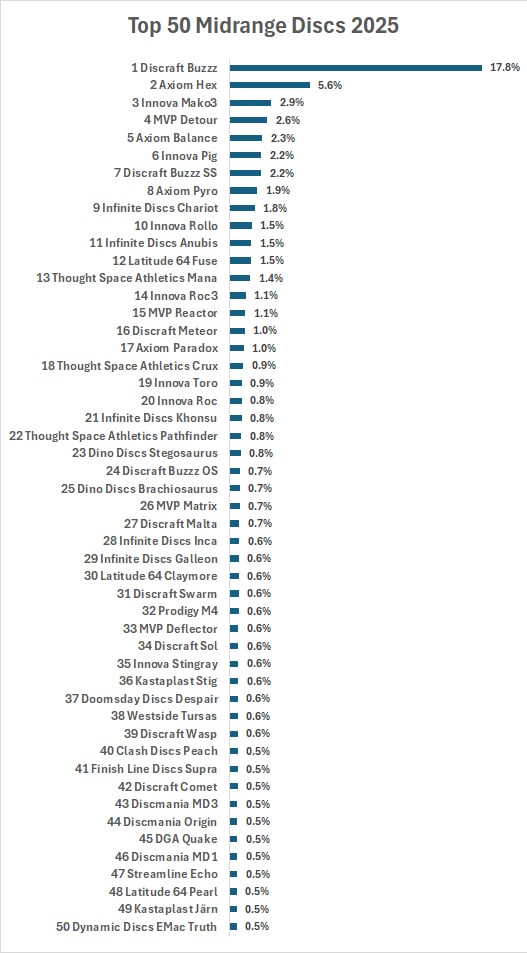
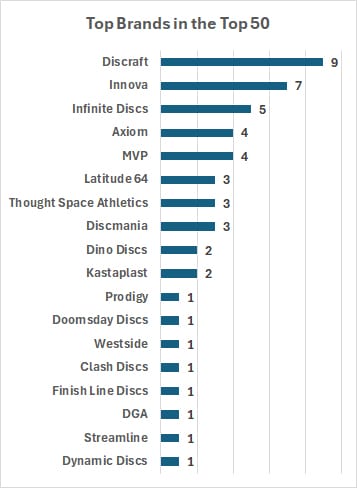 Discraft leads the chart with the most molds in the top 50, with 9. The Buzzz, Buzzz SS, and the flippy midrange Meteor are the top sellers for Discraft. Innova takes second with 7 molds. Infinite takes the final podium spot with 5 molds in the top 50. There are 18 different brands represented in the top 50.
Discraft leads the chart with the most molds in the top 50, with 9. The Buzzz, Buzzz SS, and the flippy midrange Meteor are the top sellers for Discraft. Innova takes second with 7 molds. Infinite takes the final podium spot with 5 molds in the top 50. There are 18 different brands represented in the top 50.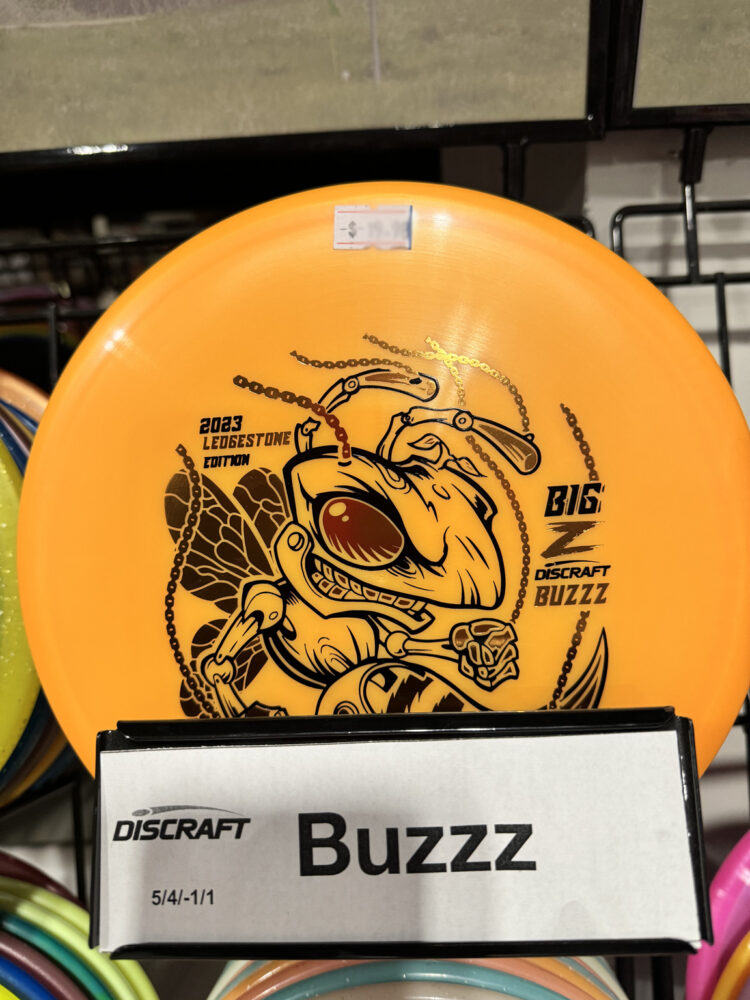


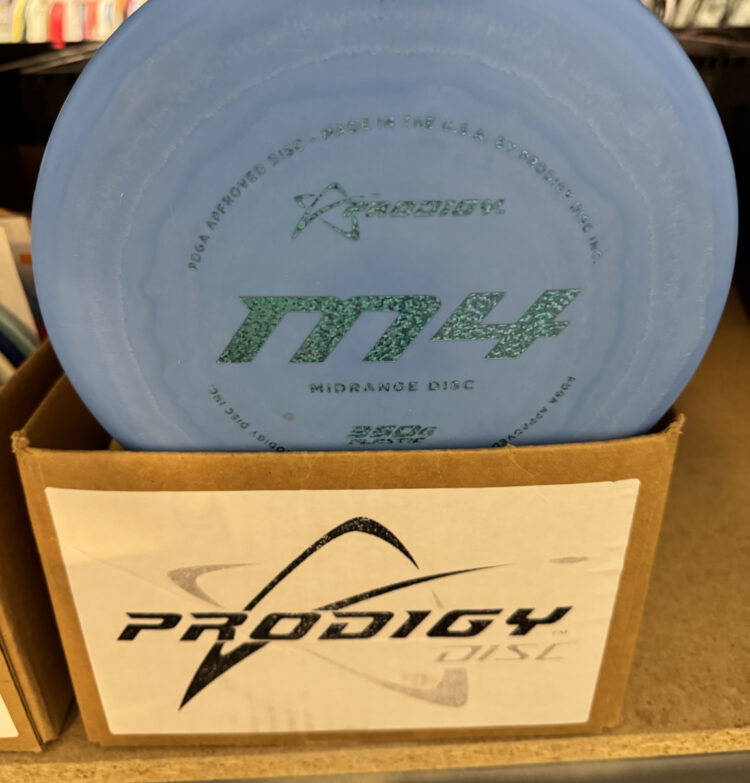
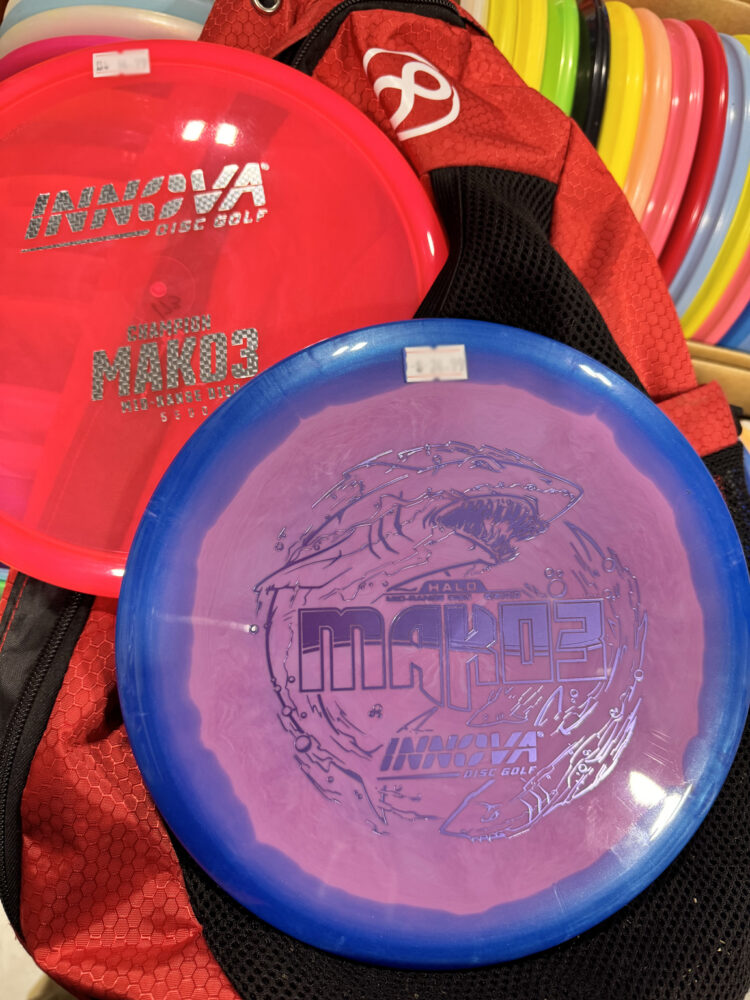

 Although the exact algorithm isn’t made public, we know approximately how they are determined. Ratings are based on the scores you’ve earned in PDGA-sanctioned events. Here’s how it works:
Although the exact algorithm isn’t made public, we know approximately how they are determined. Ratings are based on the scores you’ve earned in PDGA-sanctioned events. Here’s how it works:
 There are limits set by the PDGA that restricts people a high enough rating from playing in certain divisions. As mentioned, it’s also a handy way to track your progress over time. And let’s be honest, there’s something satisfying about seeing that number trend upward.
There are limits set by the PDGA that restricts people a high enough rating from playing in certain divisions. As mentioned, it’s also a handy way to track your progress over time. And let’s be honest, there’s something satisfying about seeing that number trend upward.
 For those disc golfer new to the sport, let’s define a few terms that we will use in this blog. These are terms you will commonly hear in disc golf. If you’ve been playing a while, you can skip over this section, since you will be familiar with these terms.
For those disc golfer new to the sport, let’s define a few terms that we will use in this blog. These are terms you will commonly hear in disc golf. If you’ve been playing a while, you can skip over this section, since you will be familiar with these terms.

